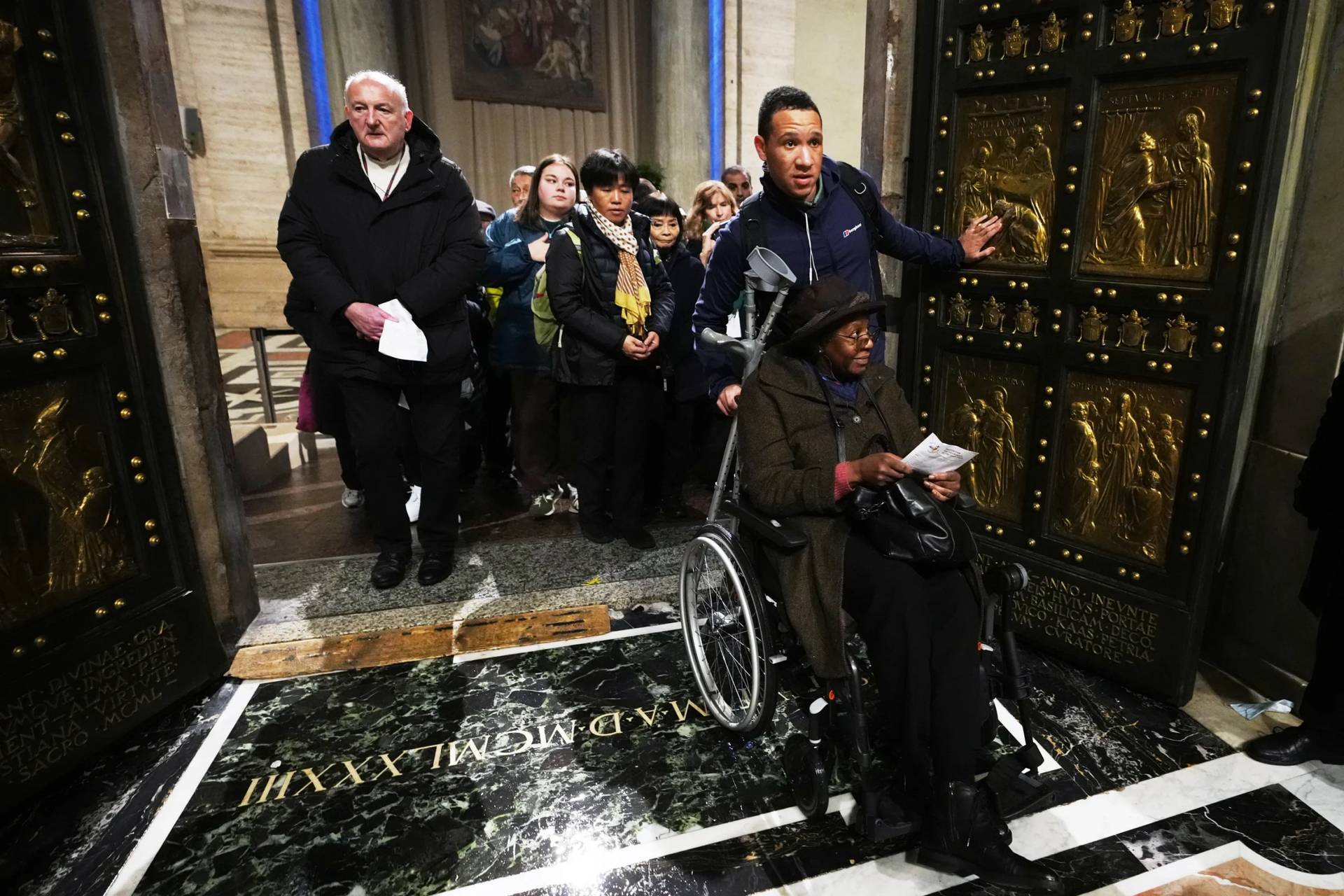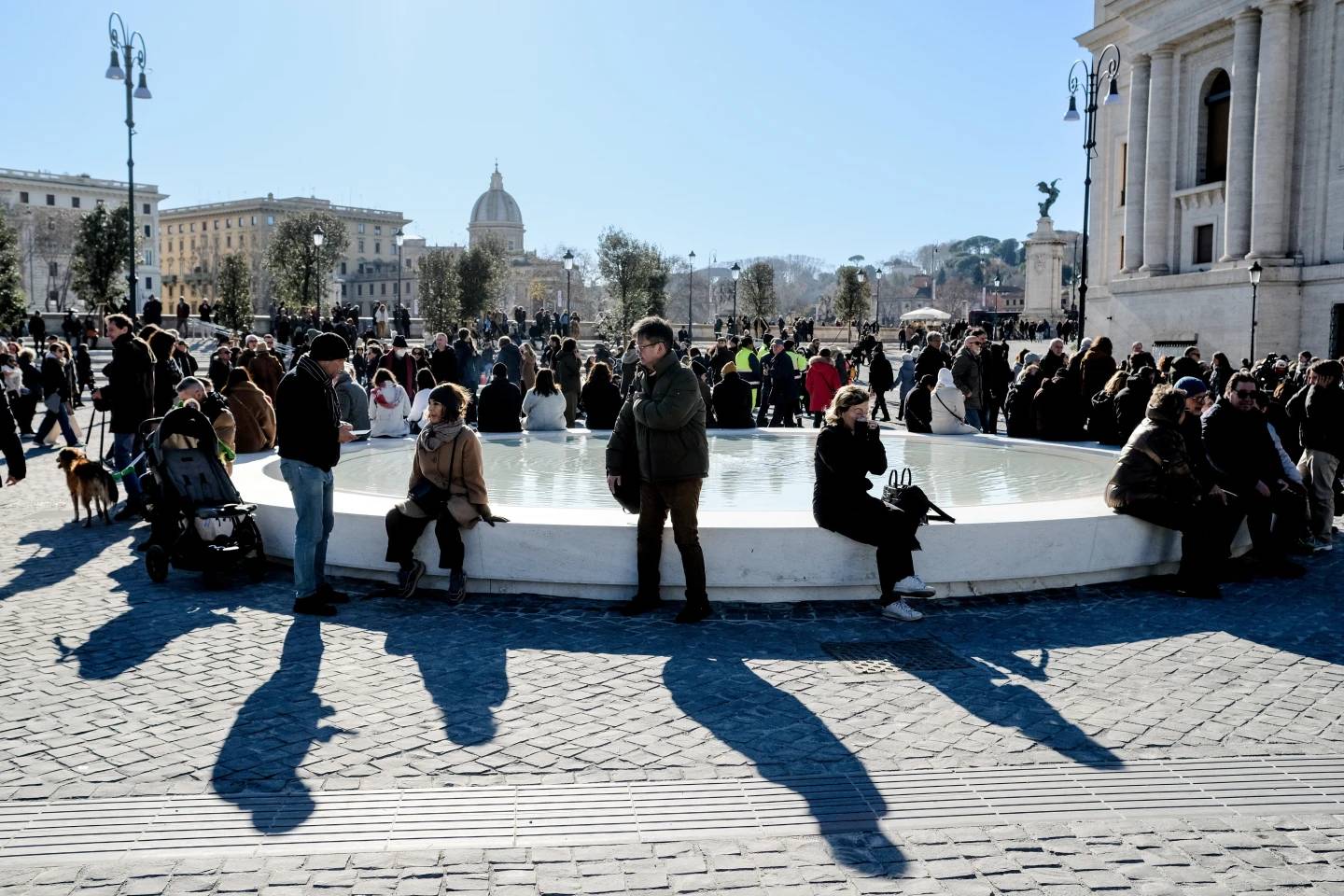ROME – In a joint statement from Pope Francis and Patriarch Bartholomew to mark the World Day of Prayer for the Care of Creation on Sept. 1, the two said that what’s happening in the world today reveals a “morally decaying scenario, where our attitude and behavior towards creation obscures our calling as God’s co-operators.”
They call on those “in positions of social and economic, as well as political and cultural, responsibility to hear the cry of the earth, and to attend to the needs of the marginalized.”
Those leaders, Francis and Bartholomew write, are called to “respond to the plea” of millions, and support “the consensus of the world for the healing of our wounded creation.”
One point stressed by Francis and Bartholomew is that care for the environment, and care for the poor, are inextricably linked.
“The human environment and the natural environment are deteriorating together, and this deterioration of the planet weighs upon the most vulnerable of its people,” they say. “The impact of climate change affects, first and foremost, those who live in poverty in every corner of the globe.
“We are convinced,” they say, “that there can be no sincere and enduring resolution to the challenge of the ecological crisis and climate change unless the response is concerted and collective, unless the responsibility is shared and accountable, unless we give priority to solidarity and service.”
The two begin their 600-word long message quoting from the Book of Genesis, saying it makes clear that “in the beginning,” God wanted humanity to cooperate in the protection of the environment.
The passage they cite says that when the earth was created, “No plant of the field was yet in the earth, and no herb of the field had yet sprung up – for the Lord God had not caused it to rain upon the earth, and there was no one to till the ground.”
“Our human dignity and welfare are deeply connected to our care for the whole of creation,” Francis and Bartholomew write.
Yet, they observe in the message released Sept. 1, humanity’s propensity to break the world’s “delicate and balanced ecosystems, our insatiable desire to manipulate and control the planet’s limited resources, and our greed for limitless profit in markets,” have “alienated us from the original purpose of creation.
“We no longer respect nature as a shared gift; instead, we regard it as a private possession. We no longer associate with nature in order to sustain it; instead, we lord over it to support our own constructs,” the leaders write.
RELATED: Pope and Patriarch: A common declaration for a shared world
The message was released on the day when the two Churches mark a World Day of Prayer for the Care of Creation. This initiative was started by Bartholomew’s predecessor, Patriarch Demetrios I, in 1989.
In 2015, Bartholomew’s personal envoy, Metropolitan John Zizioulas, was one of the speakers at the presentation of Laudato si’, Francis’s landmark encyclical on environmental ecology. In the document, Francis praised the ecumenical patriarch’s work for the environment.
In that same year, Francis decreed that the Catholic Church henceforth also would mark September 1st as a day of prayer for creation.
On that occasion, the pontiff said that the day is to be a time for individuals and communities to “reaffirm their personal vocation to be stewards of creation, to thank God for the wonderful handiwork which he has entrusted to our care, and to implore his help for the protection of creation as well as his pardon for the sins committed against the world in which we live.”
Speaking to Crux, Cardinal Peter Turkson, the pope’s right-hand man on environmental issues, said that when his office was asked to present Francis with a draft of the encyclical, they had also suggested the possibility of doing a joint statement with Bartholomew instead.
RELATED: Turkson says pro-life cause and environmental activism are inseparable
Francis and Bartholomew say that they’re convinced there’s no sincere and enduring solution to the ongoing ecological crisis unless “the response is concerted and collective, unless the responsibility is shared and accountable, unless we give priority to solidarity and service.”
Ahead of the Sept. 1 day of prayer, the conference of European Catholic bishops issued their own statement together with the Conference of European Churches, a fellowship of some 114 Orthodox, Protestant, Anglican and Old Catholic Churches from all countries of Europe, plus 40 National Councils of Churches and Organizations in Partnership.
“Christians of all traditions acknowledge creation as a gift from God,” they say in their statement. “This is why we are called to care for and manage it with responsibility.”
Inviting the faithful to join in the day of prayer, they also urge them to expand on it, marking Sept. 1-Oct.4 as a Time for Creation.
“Recent developments remind of the growing urgency of the continuing climate change, loss of biodiversity, growing piles of waste and many other challenges,” the religious leaders write. “Even if we know there are several causes, we cannot forget that part of the problem is due to our selfishness, lack of care and wide spread misunderstanding of the world as a source of profit.”
Pope Francis and Ecumenical Patriarch Bartholomew
From the beginning, the relationship between Francis and Bartholomew has been striking.
Back in March 2013, when history’s first pope from the Global South was installed, Bartholomew became the first Patriarch of Constantinople, considered a “first among equals” in the Orthodox world, to attend the ceremony following a schism that separated the Christian East and Christian West in the eleventh century.
At the time, it was described as a “profoundly bold step in ecumenical relations” between Orthodox and Catholics. During a lunch after Francis’s inaugural Mass, the pope presented Bartholomew to his cardinals as “my dear brother Andrew,” a reference to the Orthodox tradition that the patriarch of Constantinople is the successor of the apostle St. Andrew, just as Catholics see the pope as the successor of St. Peter.
Since then, the relationship between the two has continued to grow.
In 2014, Francis traveled to Jerusalem, at the invitation of Bartholomew, to reenact a historic 1964 embrace by Pope Paul VI and Orthodox Patriarch Athenagoras. That May, the two came together for a joint prayer service at the Basilica of the Holy Sepulcher, seated next to each other on the altar. They embraced at the beginning and the end, and their affection was clear.
“We know that much distance still needs to be traveled before we attain that fullness of communion… we ardently desire,” Francis said. “Yet our disagreements must not frighten us and paralyze our progress. We need to believe that, just as the stone before the tomb was cast aside, so too every obstacle to our full communion will also be removed.”
A few days later, the Catholic leader organized a prayer service at the Vatican gardens with the Palestinian and Israeli president, and invited Bartholomew to join, which he did.
That November, the pope travelled to Turkey, where he participated in the liturgical celebration of St. Andrew in the patriarchal church of Fanar. On this occasion, the two signed a joint declaration reaffirming their desire to overcome the obstacles dividing their two Churches.
In April 2016, at Bartholomew’s suggestion, the two visited the Greek island of Lesbos, where they were welcomed by the Orthodox archbishop of Athens Hyeronimos. The three spent the entire day together, visiting refugee camps and sharing a moment of prayer.
The last time the two saw each other was this April, during Francis’s visit to Egypt, where the two attended an international conference on peace hosted by the Al-Azhar mosque and university, considered the most prestigious center of learning in the Sunni Muslim world.















